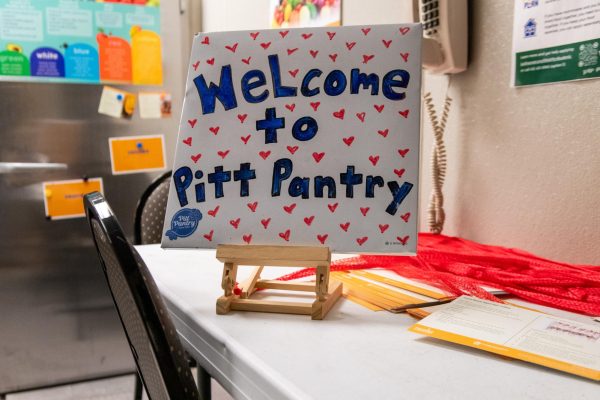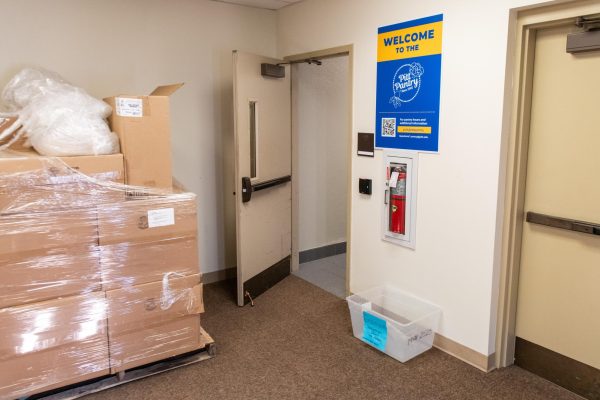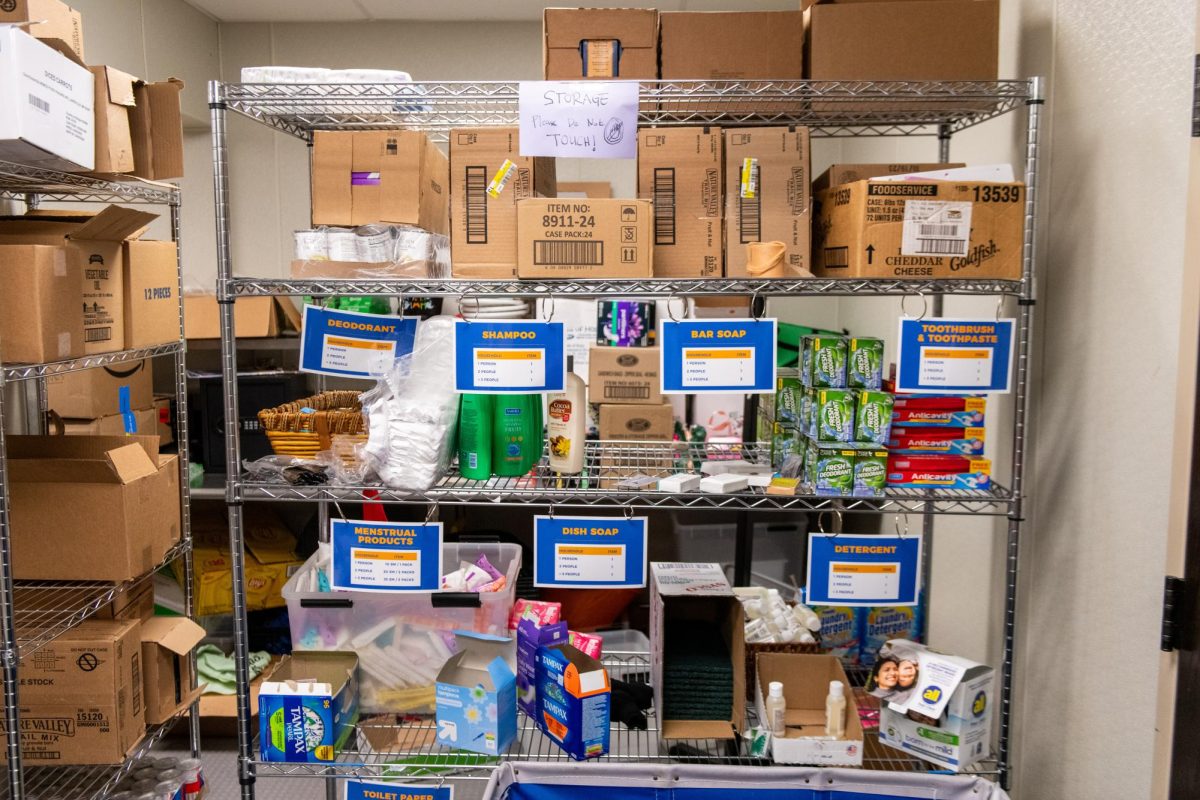A fall 2020 survey conducted by the Hope Center at Temple University found that 34% of college students experienced food insecurity. At Pitt, the lack of grocery stores located in Oakland often exacerbates this problem.
Pitt first responded to student food insecurity by opening Pitt Pantry in 2015. The pantry, originally situated in the basement of Bellefield Church, now operates out of the O’Hara Student Center after moving in 2022. It serves a mixture of undergraduates, grad students, faculty and staff by providing free access to food in addition to menstrual products and other hygiene necessities.
In order to supply the pantry, Pitt partners with the Greater Pittsburgh Community Food Bank, and supplements the rest with donations. Sarah Ramaley, Assistant Director of Basic Needs in the Care and Resource Support Office, is one of the people who facilitates that partnership.
“As one of their partners, we can order food from them every week,” Ramaley said. “We do pay a cost for it, but a lot of it is discounted or bulk prices. They do have a few free items and it changes week to week whatever they have in stock, but we place an order with them once a week and it gets delivered.”
According to Ramaley, the pantry sees just over 600 households per semester, equating to about 800 people that benefit from the resource. Food distributed by the pantry includes meals donated by Pitt Eats, items from Panera Bread and produce, some of which they receive from Plant2Plate. The pantry is open to students and faculty up to two times a month for regular groceries, and there is no monthly limit for getting produce.
Ria Hosuru, a senior majoring in neuroscience and statistics, began volunteering at a food pantry while in middle school and joined Pitt Pantry her sophomore year and is now serving as a student coordinator. She emphasized the pantry’s goal to cater to a large variety of people.
“We also try to focus on giving food options that make people feel dignified,” Hosuru said. “So we have a gluten-free shelf, we have dairy-free milk, we have halal meat, we have vegan options.”

Noel Do, a senior studying natural science and another student coordinator, described the pantry’s efforts to include more culturally diverse options. Do emphasized that the pantry wants to address the large percentage of international students at Pitt, who may be particularly vulnerable to food insecurity.
“We want the whole spectrum, not just like the average pancake mix,” Do said. “You want seaweed too, or rice noodles. That also makes it easier for dietary restrictions because other cultures are very friendly to dietary restrictions most of the time. Like Asian cuisine is mostly gluten-free because they use rice and things like that.”
The pantry also works to provide “options to have a nutritious balanced meal,” including lots of fresh food that Do said the pantry often receives in surplus.
“We have a lot of produce, fruits, vegetables,” Do said. “That kind of stuff is unlimited, and we try to get shoppers to come in and take that a lot.”
Sophomore environmental science major Cassidy Muldowney specifically cited the difficulty of buying produce and fresh food while living in Oakland.
“It goes bad so quickly, and I don’t want to waste food,” Muldowney said.
Muldowney began living in an apartment and buying groceries this year, and while money isn’t her main concern, getting groceries is still a challenge.
“The biggest concern when it comes to food is transportation to get to and from there,” she said.

Hosuru agreed with Muldowney and said one of the pantry’s goals is to cut down on the long commutes and bus rides students often experience when grocery shopping.
“We’re a resource that makes it a little bit easier for all students to sort of swing by and grab something if their pantry is empty, if they haven’t had a meal recently,” Hosuru said. “So we’re really trying to have that set, easy to access resource.”
Though those involved in the pantry want as many students as possible to utilize the resource, Do acknowledged that often students may not use it because they don’t think they need it as much as others do.
“Sometimes that can really mess with people if they have more pride in being independent and not having to rely on other people,” Do said. “So we try to break it down and make it like a casual thing.”
In order to fight against those stigmas, the volunteers at Pitt Pantry try to make shoppers feel as comfortable as possible whenever they visit.
“We try to make it as welcoming and accommodating as possible, and we try to make it an environment that when you go out you don’t feel like ‘Oh, you’re in a food pantry,’” Do said. “You’re kind of just in a space to get free food, because who doesn’t love free food?”


